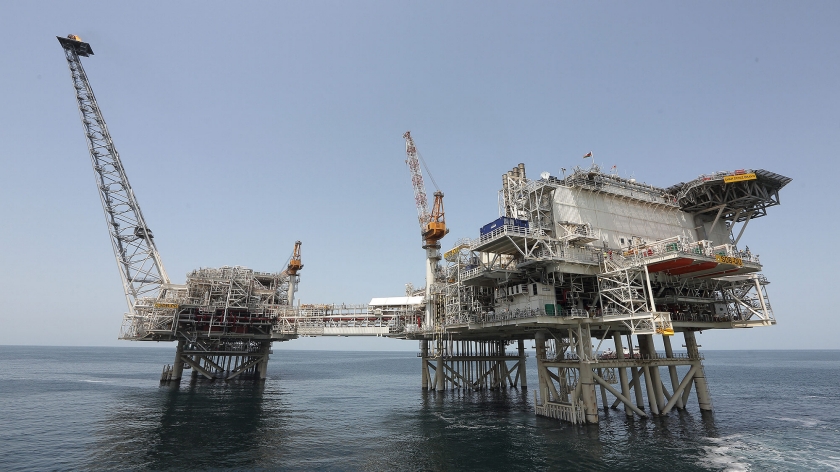Shah Deniz 2 begins production, but last 5 miles of pipe could cause a screeching halt in Europe
New supply is on the horizon for European gas markets, as BP (ticker: BP) recently announced the startup of stage 2 of the Shah Deniz project, one of the largest gas projects to start up this year.
Huge scope of the project
Shah Deniz 2 continues the development of the massive Shah Deniz field in the Caspian Sea, offshore of Azerbaijan. The field has an estimated 40 Tcf of gas in place, with large additional volumes of gas condensate. This phase of development involved drilling 26 new wells, which will connect to two new platforms. The Sangachal terminal, where produced gas is processed, was significantly expanded to accommodate the new volumes, and pipelines were extensively upgraded.

Shah Deniz 2 is expected to produce a gross 310 MBOEPD, split between 1.5 Bcf/d and roughly 50 MBOPD of gas condensate. In total, the Shah Deniz field is producing 2.5 Bcf/d and 120 MBOPD of condensate.
More than $41 billion will be invested for transport infrastructure to move Caspian gas to Europe
There is a tremendous amount of money invested in the overall project, a sign of Europe’s willingness to spend to acquire gas supply from non-Russian sources. Stage 2 of Shah Deniz, which includes the new production facilities, and upgrades to the South Caucasus Pipeline, cost $28 billion alone. The Trans-Anatolia line cost an estimated $8.5 billion, while the Trans-Adriatic line is expected to cost $5.2 billion.
BP is the operator of the project, but Shah Deniz is being developed by a large consortium. BP holds 28.8% interest, while SOCAR holds 16.7%, Petronas owns 15.5%, Lukoil owns 10%, NICO holds 10% and TPAO owns 19%.
BP CEO Bob Dudley commented on bringing Shah Deniz 2 online, saying “Shah Deniz 2 is one of the biggest and most complex new energy projects anywhere in the world, comprising major offshore, onshore and pipeline developments. BP and our partners have safely and successfully delivered this multi-dimensional project as designed, on time and on budget. Together with the Southern Gas Corridor pipeline system, Shah Deniz 2 will deliver significant new energy supplies to Europe.”
A long way to travel
Transporting gas from Azerbaijan to European consumers requires a very long journey, and a number of major pipeline projects are currently in progress.
The Shah Deniz consortium also owns the South Caucasus Pipeline, which runs from the Sangachal terminal through Azerbaijan and Georgia to the border with Turkey. The Trans-Anatolia pipeline then moves gas across Turkey, where it connects to the Trans-Adriatic pipeline, which runs through Greece and Albania, under the Mediterranean Sea, and ends in the eastern tip of Italy.
The lines from the Caspian Sea to Greece are already in service, but the Trans-Adriatic pipeline is still under construction. The three pipelines stretch a combined 2,120 miles.
Unfortunately for BP and the other Shah Deniz partners, the Trans-Adriatic pipeline is encountering difficulties.
Final five miles of line are causing opposition
It’s ironic that 2,100 miles of pipeline are either completed or are now under construction, but the last five miles—the only part in Italy—could stop the project in its tracks.
Local protesters are in a years-long fight to block the line, because the route terminates after traversing beneath a centuries-old Italian olive grove. Local farmers, residents and historians say ‘no’ to project developers’ plans call for them to uproot, relocate and replant 1,600 olive trees that the locals have tended, protected and farmed for generations.
While the line is scheduled to begin transporting gas in 2020, achieving completion on schedule is judged highly unlikely. Elchin Mammadov, an analyst for Bloomberg, estimates “there is a 90% probability that it will not be ready.”
Italy’s new government questions the pipeline route
The new Italian government is also calling the pipeline’s future into question. The new minister for the southern regions of Italy is staunchly opposed to the line, and is calling for a committee to either stop the project or change the route. The environmental minister has stated the entire project will be put under review. Rerouting the line would almost certainly delay the pipeline by several years, which would be a costly change.




